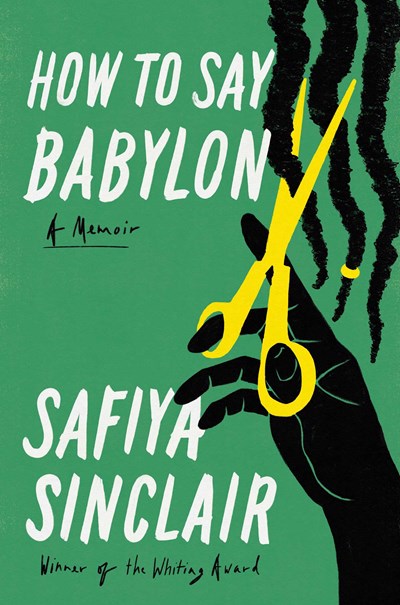2018 School Spending Survey Report
How To Say Babylon: A Memoir
COPY ISBN
 Award-winning poet Sinclair (Cannibal) examines her Jamaican childhood through the lens of colonialism and her upbringing in a household that followed a rigid sect of Rastafari. Born in Montego Bay, she was subjected to her reggae-musician father’s strict guidelines for women: obey; wear pants, makeup, or jewelry are not allowed; do not express opinions, eat meat, or have dreadlocks. He railed against the temptations of Babylon, defined as the corrupt and immoral influences of the West. Meanwhile, the author’s mother was committed to educating Sinclair and her siblings. She exposed them to books, poetry, and a set of encyclopedias to give her children a sense of the world. Sinclair’s childhood experiences expose the inequities and fissures on an island dominated by white tourism. Through her own perseverance, and with her mother’s dogged support, Sinclair earns a scholarship to a private school and eventually makes her way to the United States to study literature and creative writing. Navigating their burgeoning consciousnesses and sexualities in the author’s household proved fraught for Sinclair and her siblings, but their love for one another provides ballast.
Award-winning poet Sinclair (Cannibal) examines her Jamaican childhood through the lens of colonialism and her upbringing in a household that followed a rigid sect of Rastafari. Born in Montego Bay, she was subjected to her reggae-musician father’s strict guidelines for women: obey; wear pants, makeup, or jewelry are not allowed; do not express opinions, eat meat, or have dreadlocks. He railed against the temptations of Babylon, defined as the corrupt and immoral influences of the West. Meanwhile, the author’s mother was committed to educating Sinclair and her siblings. She exposed them to books, poetry, and a set of encyclopedias to give her children a sense of the world. Sinclair’s childhood experiences expose the inequities and fissures on an island dominated by white tourism. Through her own perseverance, and with her mother’s dogged support, Sinclair earns a scholarship to a private school and eventually makes her way to the United States to study literature and creative writing. Navigating their burgeoning consciousnesses and sexualities in the author’s household proved fraught for Sinclair and her siblings, but their love for one another provides ballast.
VERDICT An intriguing and beautifully written account of a childhood steeped in the Rastafarian religious and political movement. Sinclair’s refusal to give up on her dreams inspires.
RELATED
ALREADY A SUBSCRIBER? LOG IN
We are currently offering this content for free. Sign up now to activate your personal profile, where you can save articles for future viewing




Comment Policy:
Comment should not be empty !!!